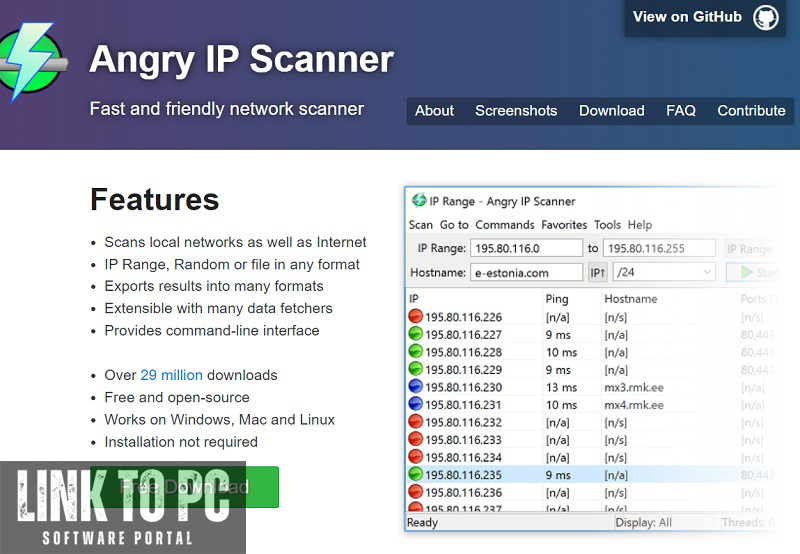Angry IP Scanner
Introduction
Angry IP Scanner is a fast and open-source network scanning tool widely used by network administrators and IT professionals for detecting devices on a network. It is lightweight yet powerful, enabling users to quickly scan IP addresses and ports, making it an invaluable tool for network troubleshooting, inventory management, and security assessments. Whether you’re managing a small home network or a large enterprise, Angry IP Scanner offers a simple and effective solution for network discovery.

Key Features of Angry IP Scanner
- Fast and Lightweight:
Angry IP Scanner is designed for speed, enabling it to scan hundreds of devices in seconds with minimal system resource usage. - Cross-Platform:
Available for Windows, macOS, and Linux, ensuring compatibility across various environments. - Customizable Data Collection:
Allows users to fetch additional data about each scanned device, such as hostname, ping response, MAC address, and open ports. - IP Range Scanning:
Users can scan entire IP address ranges or specific lists, making it highly flexible for network analysis. - Port Scanning:
Detects open ports on devices, providing insights into services running on the network. - Export Scan Results:
Scan results can be exported in multiple formats, such as CSV, TXT, or XML, for further analysis and reporting. - No Installation Required:
Angry IP Scanner is portable and can run directly without installation, making it easy to use on any system. - Plugin Support:
Extend functionality with plugins for additional features and data collection. - Open Source:
As an open-source tool, Angry IP Scanner is free to use and allows developers to modify the source code to fit their needs. - Command-Line Interface (CLI):
Includes a CLI version for automation and scripting, ideal for advanced users and batch processes.
System Requirements
For Windows
- Operating System: Windows 7 or later (32-bit and 64-bit)
- Processor: 1 GHz or faster processor
- RAM: Minimum 512 MB; 1 GB or more recommended
- Disk Space: At least 10 MB for installation
- Java Requirement: Requires Java Runtime Environment (JRE) 8 or later
For macOS
- Operating System: macOS 10.10 (Yosemite) or later
- Processor: Intel or Apple Silicon processor
- RAM: Minimum 512 MB; 1 GB or more recommended
- Disk Space: At least 10 MB for installation
- Java Requirement: Requires Java Runtime Environment (JRE) 8 or later
For Linux
- Operating System: Recent distributions like Ubuntu, Fedora, or Debian
- Processor: Modern x86 or x64 processor
- RAM: Minimum 512 MB; 1 GB or more recommended
- Disk Space: At least 10 MB for installation
- Java Requirement: Requires Java Runtime Environment (JRE) 8 or later


Leave a Reply